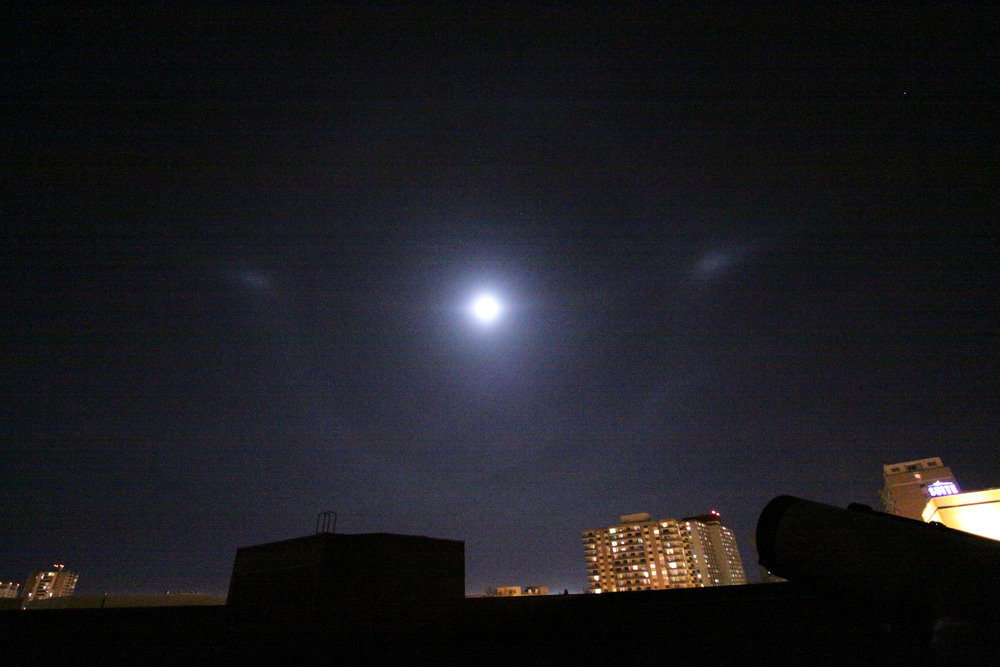THE SOUTHWORTH PLANETARIUM
207-780-4249 www.usm.maine.edu/planet
70 Falmouth Street Portland, Maine 04103
43.6667° N 70.2667° W
Altitude: 10 feet below sea level
Founded January 1970
Julian Date: 245919.16
Julian Date: 245919.16
2019-2020: CXIII
"We love the Universe. It's Great!"
THE DAILY ASTRONOMER
Tuesday, March 10, 2020
The Fetching Moon Dogs
Moon dogs!
Mock moons!
Or, to the incurably pedantic, paraselene.
In case you weren't outside admiring the night sky, these phantom canines materialized out of the firmament last night. They appeared similar to the image below:

Moon dogs photographed in the sky of Edmonton, Alberta
Moon dogs are those ghostly moon images appearing at either side of the actual moon. They only appear when the moon is particularly bright and shining through a cirrus or cirrostratus clouds. The moon dogs occur by the refraction of moonlight through hexagonal ice crystals suspended within and around the clouds. They resemble spherical splotches within the 22 degree halo that often encircles the moon.
Sun dogs occur by the same process, but are much easier to find because the Sun is substantially brighter than the moon. In fact, the moon has to be larger than a quarter to produce moon dogs. Also, unlike Sun dogs, moon dogs hardly ever exhibit any discernible colors due to their low light levels. Our eyes are not capable of distinguishing colors at low light levels.
Technically, moon and sun dogs are meteorological, not astronomical events. However, moon dogs, like meteors and the aurora borealis, are produced by the interaction between a cosmic entity and the atmosphere. the Were our planet devoid of an atmosphere, we'd never see them. Well, of course, we wouldn't even be here in the first place.
To subscribe or unsubscribe from the Daily Astronomer: